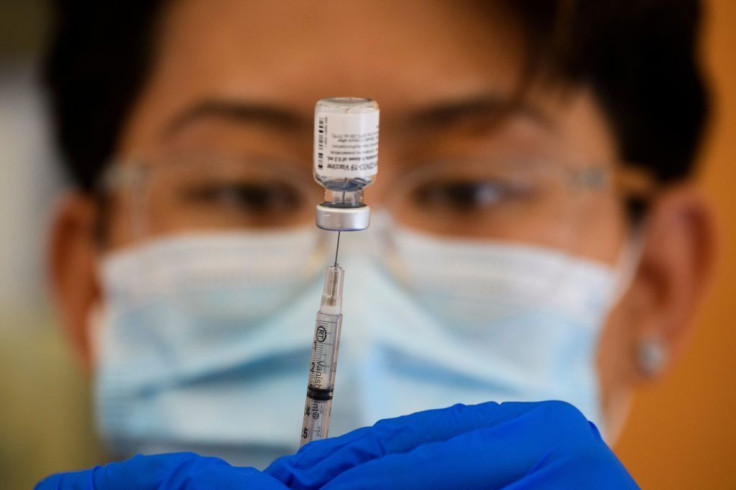Mix-And-Match COVID-19 Vaccines May Produce More Potent Immune Response: Study
KEY POINTS
- Mix-and-match COVID-19 vaccines produce potent immune responses to SARS-CoV-2, a study has found
- People who received the Oxford–AstraZeneca vaccine were given the Pfizer–BioNTech vaccine as their second dose
- Participants produced "much higher levels of antibodies" after the Pfizer booster, researchers said
Mixing COVID-19 vaccines results in a potent immune response against the virus SARS-CoV-2, a recent study in Spain has found.
Preliminary results of a study called "CombivacS," led by the Carlos III Health Institute in Madrid, showed that there are benefits to vaccinating people with both the Oxford–AstraZeneca and Pfizer–BioNTech coronavirus vaccines, Nature reported.
"It appears that the Pfizer vaccine boosted antibody responses remarkably in one-dose AstraZeneca vaccinees. This is all-around wonderful news," said Zhou Xing, an immunologist at McMaster University in Hamilton, Canada.
The institute conducted the study on 663 people who had already received their first dose of the AstraZeneca COVID-19 vaccine, which makes use of a harmless chimpanzee "adenovirus" to prompt cells to make a SARS-CoV-2 protein.
Two-thirds of the participants were randomly picked to be given the Pfizer vaccine, which is mRNA-based, as their second dose at least eight weeks after their first shot. The rest did not receive a booster, serving as the control group.
The vaccine from Pfizer–BioNTech appeared to strengthen the immune response of those who had already received the AstraZeneca vaccine, according to Magdalena Campins, an investigator on the CombivacS study. These participants produced "much higher levels of antibodies" after their second dose.
Participants who did not receive a Pfizer dose did not experience any changes in their antibody levels, Campins stated.
Mixing vaccines is nothing new. This is called a heterologous prime-boost strategy and has been used in the past for the vaccines of other diseases, including Ebola.
“These responses look promising and show the potential of heterologous prime-boost regimens,” said Dan Barouch, director of the Center for Virology and Vaccine Research at Beth Israel Deaconess Medical Center in Boston, Massachusetts.
According to Xing, based on earlier trial data, the antibody response triggered by the combination of AstraZeneca and Pfizer doses seems to be more robust than those produced by two doses of the AstraZeneca shot alone.
However, the response from the mix-and-match COVID-19 vaccination regimens has yet to be compared to the one generated by two doses of Pfizer–BioNTech and other mRNA-based vaccines. They are known to trigger an especially potent antibody response after a second dose, the report said.
"I do think there’s a brave new world of vaccinology to be scoped in all of this," said Daniel Altmann, an immunologist at Imperial College London.
Last week, a study in the U.K. that analyzed combinations of different vaccines found that participants belonging to the mix-and-match groups experienced more vaccine-related side effects than those who received two doses of the same vaccine, The Lancet reported.

© Copyright IBTimes 2025. All rights reserved.





















